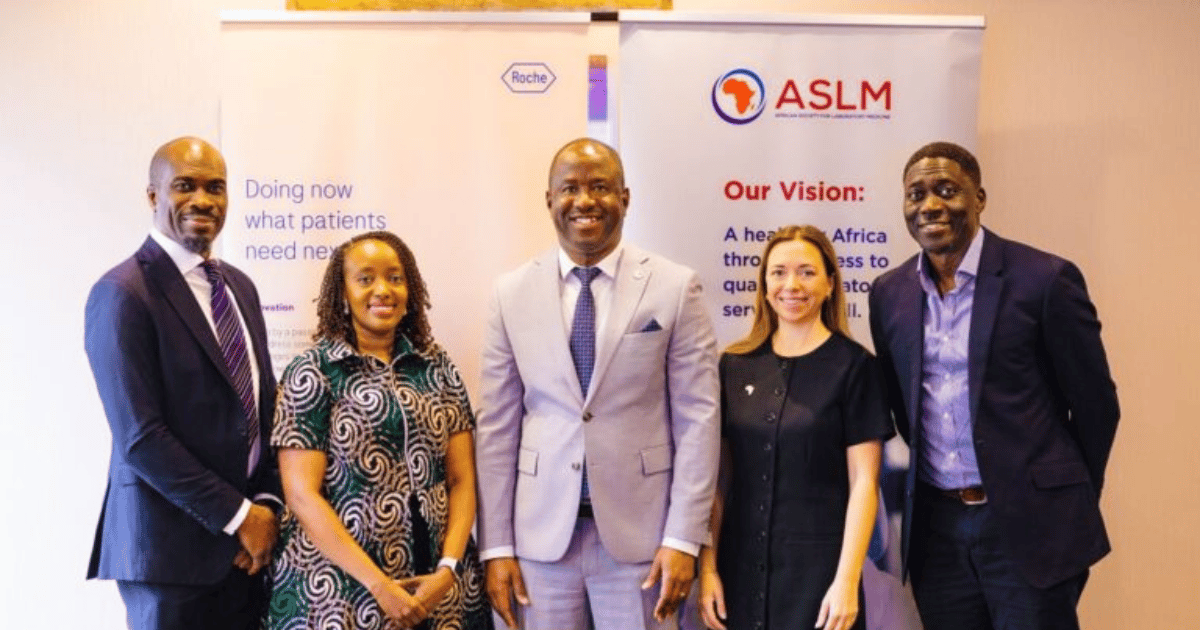
From the newsletter
Roche Diagnostics Africa and the African Society for Laboratory Medicine have launched a three-year programme aimed at strengthening laboratory leadership and improving access to quality diagnostic services on the continent. The initiative will be implemented in collaboration with national health ministries, technical experts and academic institutions.
The programme, known as Leadership Excellence for African Diagnostics (LEAD), will offer context-specific training, opportunities for regional collaboration and development of a pan-African curriculum with an academic partner, specific to each country.
Strengthening diagnostics and lab leadership equips African health systems to detect climate-sensitive diseases, adapt locally, maintain core services during climate shocks and generate data linking environmental change to public health outcomes.
More details
Roche will provide funding, technical support and global platforms to promote the initiative. The African Society for Laboratory Medicine will oversee the implementation in participating countries, coordinate with stakeholders and lead the curriculum development process. The initiative is expected to increase domestic diagnostic capacity and reduce long-term dependency on external funding.
“All healthcare systems need strong diagnostics to function, but strong laboratories require strong leaders,” said Nqobile Ndlovu, Chief Executive Officer of the African Society for Laboratory Medicine. “With this programme, we are supporting the leadership needed to advance African healthcare.” LEAD emphasises individual capability, reach and the ability to transform public health from within.
The programme will run until 2028 and aligns with broader goals to strengthen health system resilience across the region. Laboratory systems in many African countries remain underfunded, despite being critical for disease surveillance, outbreak response, and routine patient care. The LEAD programme seeks to address this gap by prioritising leadership as a central pillar of diagnostic system strengthening.
Laboratory systems across Africa are hindered by a critical shortage of skilled professionals. Many countries lack an adequate number of trained laboratory scientists, technicians, and managers, and existing staff often have limited access to ongoing professional development. This skills gap impacts the accuracy, reliability, and timeliness of diagnostic testing, undermining health systems' ability to effectively detect and respond to diseases.
Inadequate skills in laboratory systems also restrict the implementation of quality management systems and data reporting, which are essential for disease surveillance and patient care. Strengthening the laboratory workforce through targeted education and structured career pathways is crucial for improving diagnostic capacity and building resilient, self-sustaining health systems across the continent.
Strengthening diagnostic leadership in Africa boosts local markets by reducing reliance on imports and creating space for local manufacturing and services. It builds a skilled workforce vital for quality testing, improves healthcare efficiency, and fosters trust in services. Stronger systems also attract investment and support policy reforms, creating a stable, responsive environment for innovation and growth in the health business sector.
Our take
While equipment and funding remain crucial, it is skilled leadership that ensures diagnostic systems are strategic, sustainable and responsive to national needs.
Without capable leaders to guide policy, manage resources, and ensure quality, even well-equipped laboratories struggle to deliver impact.